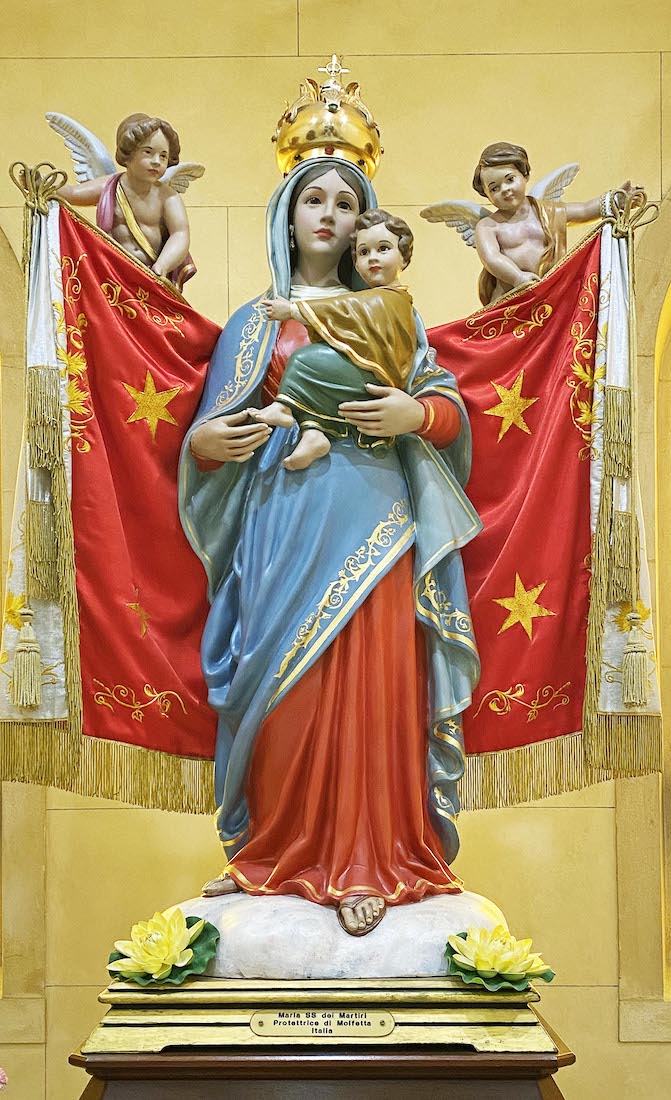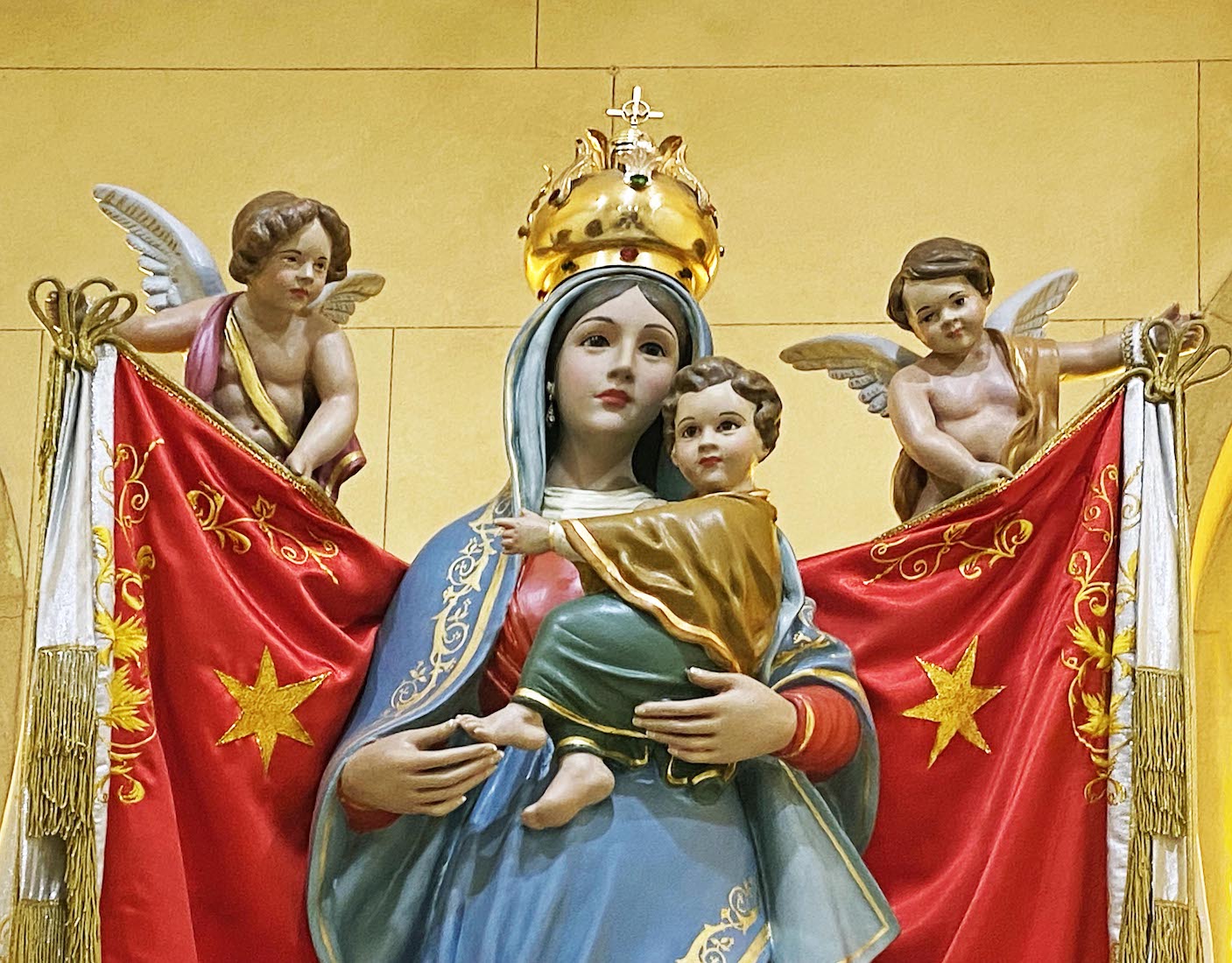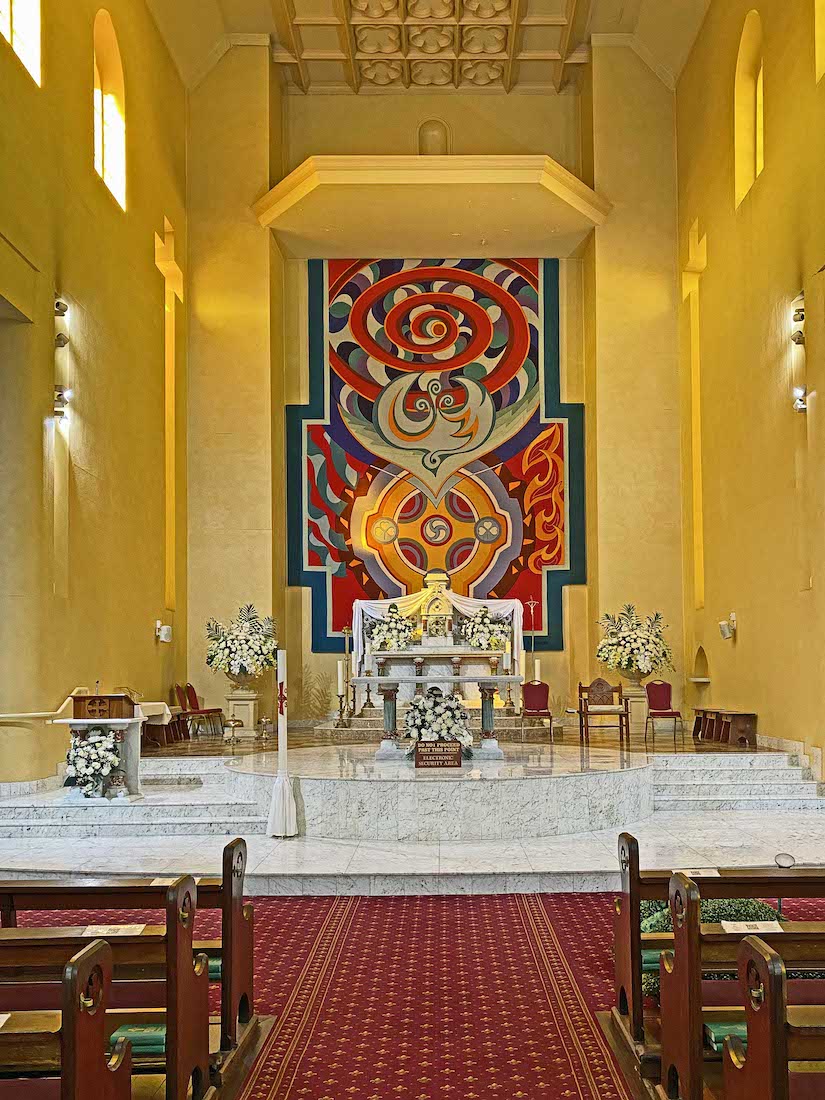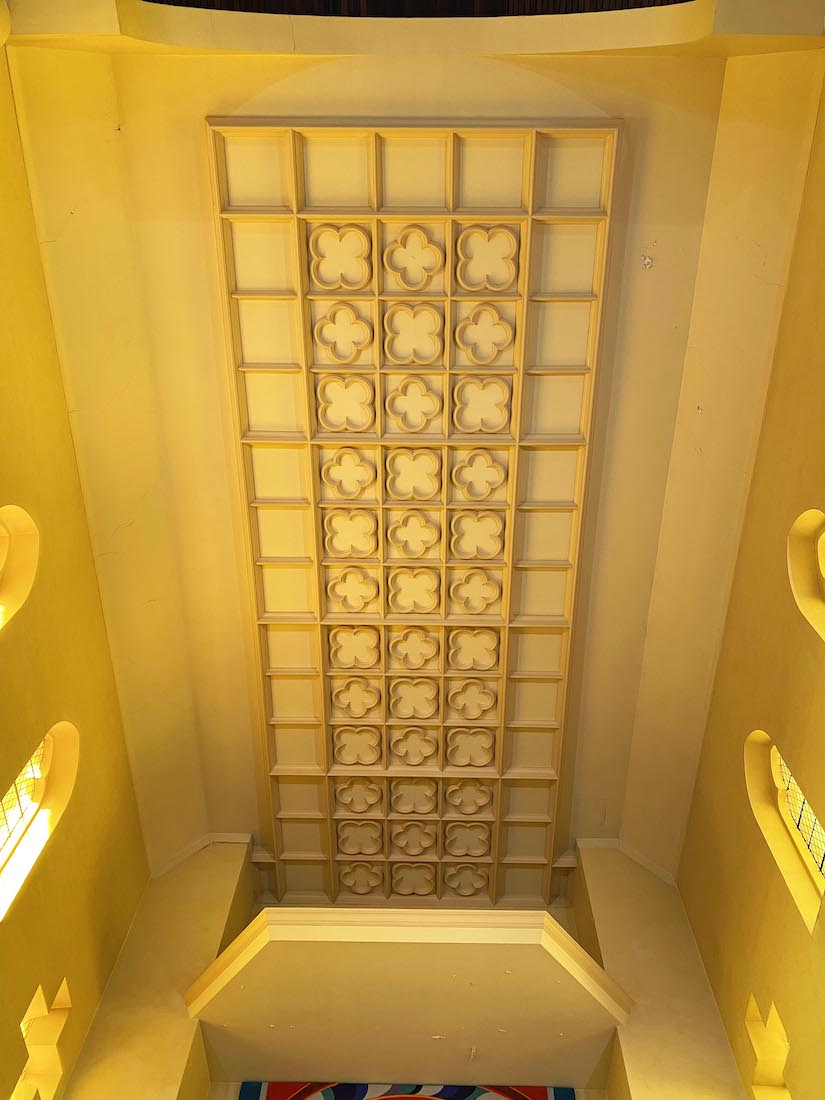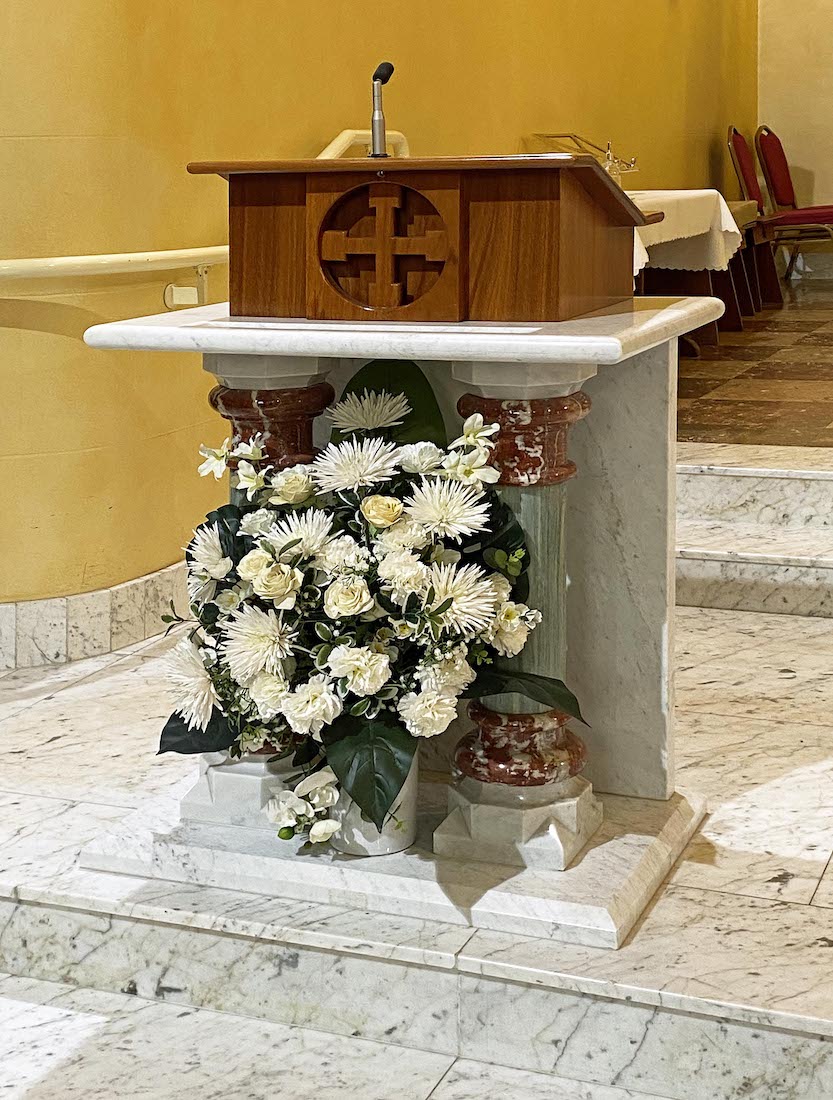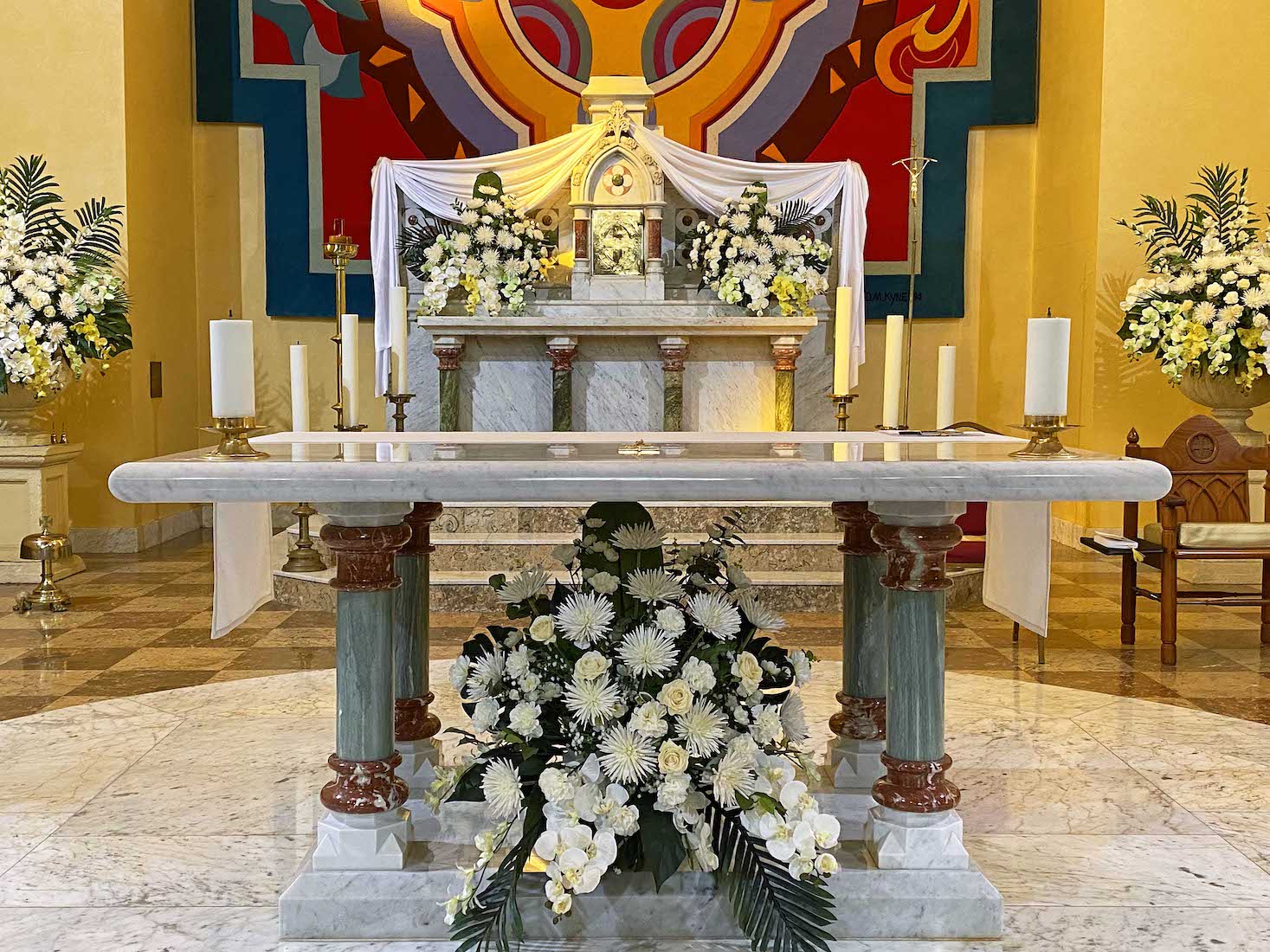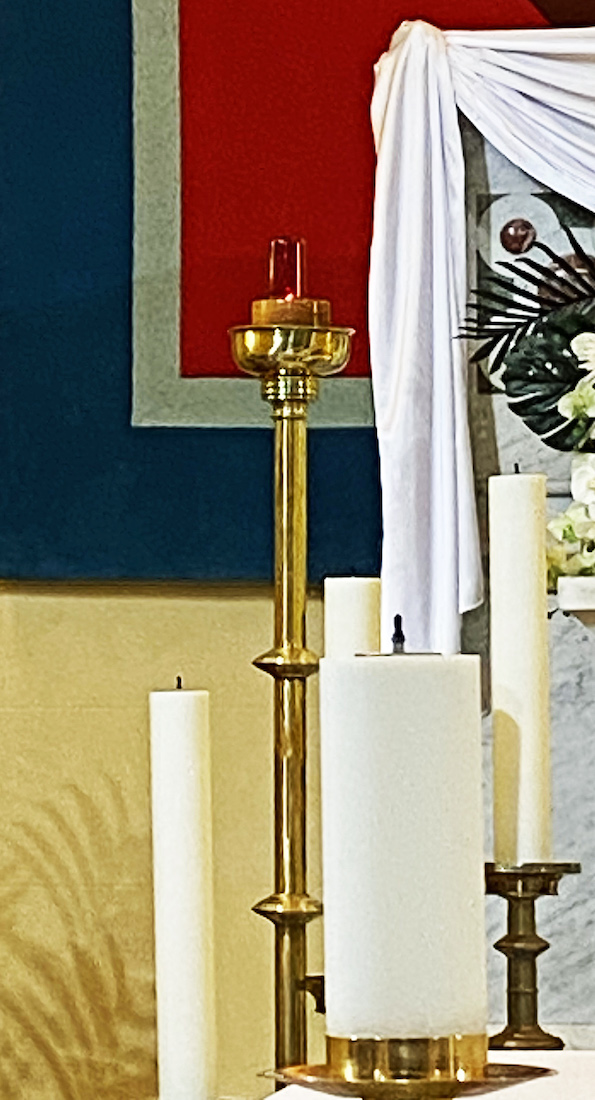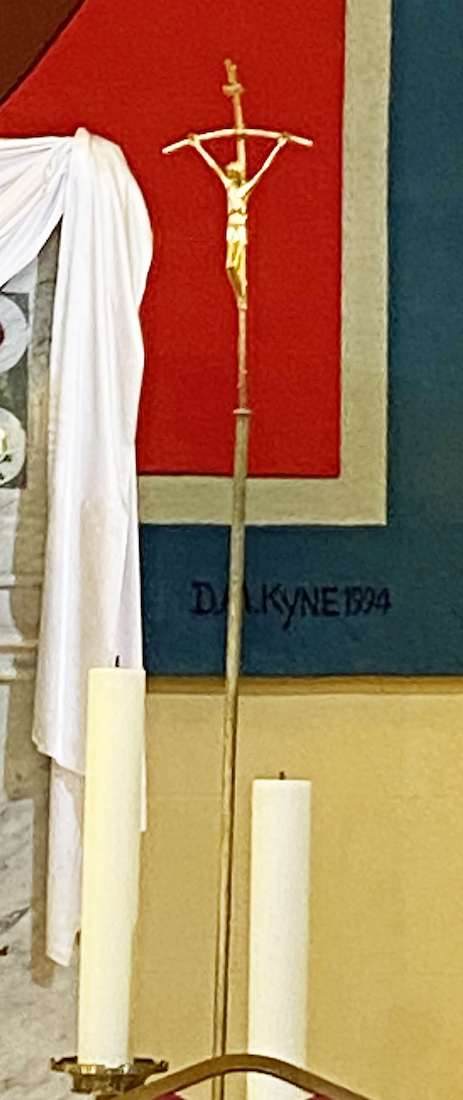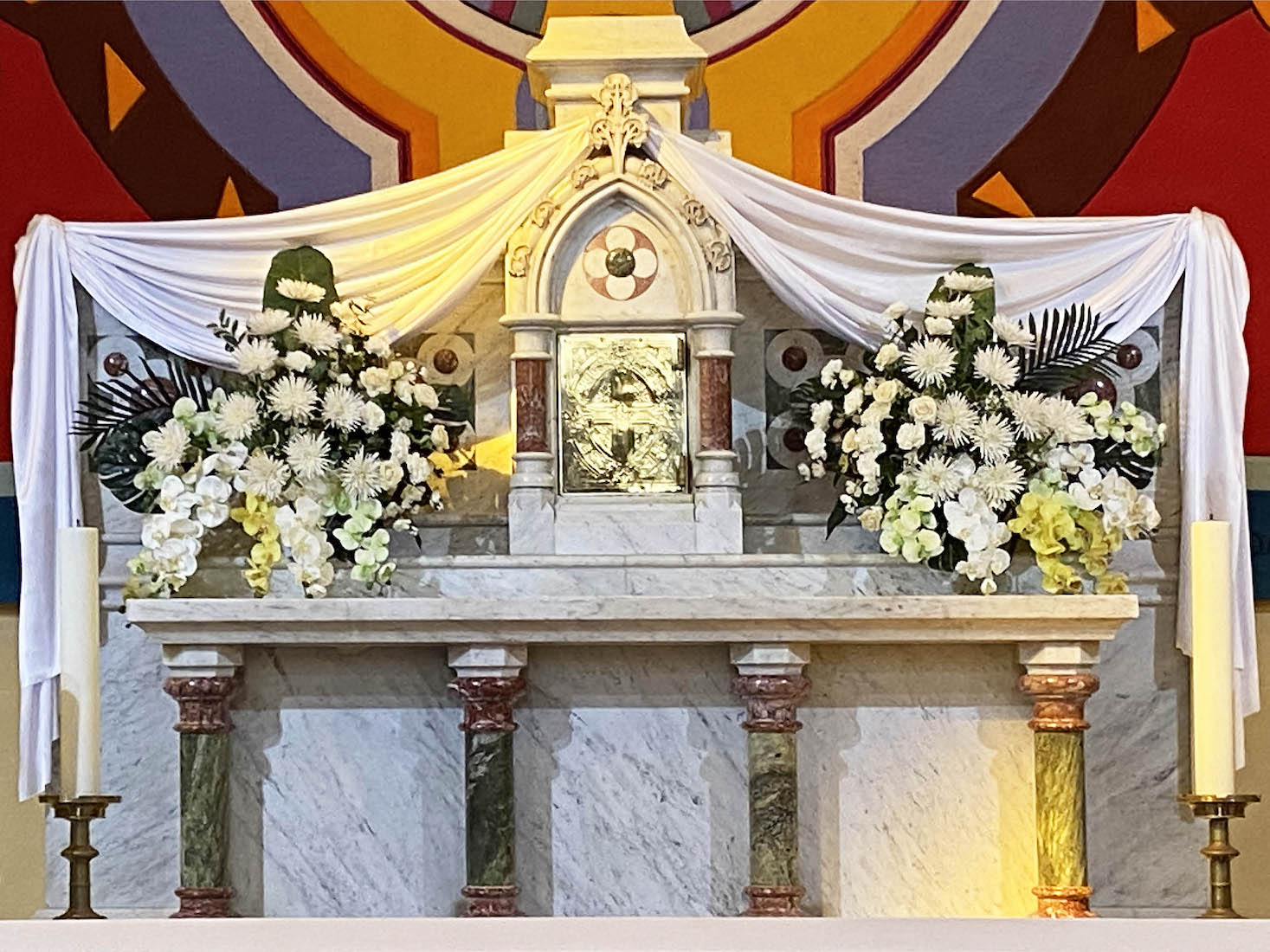41. VIRGIN MARY AND BLACK MADONNA
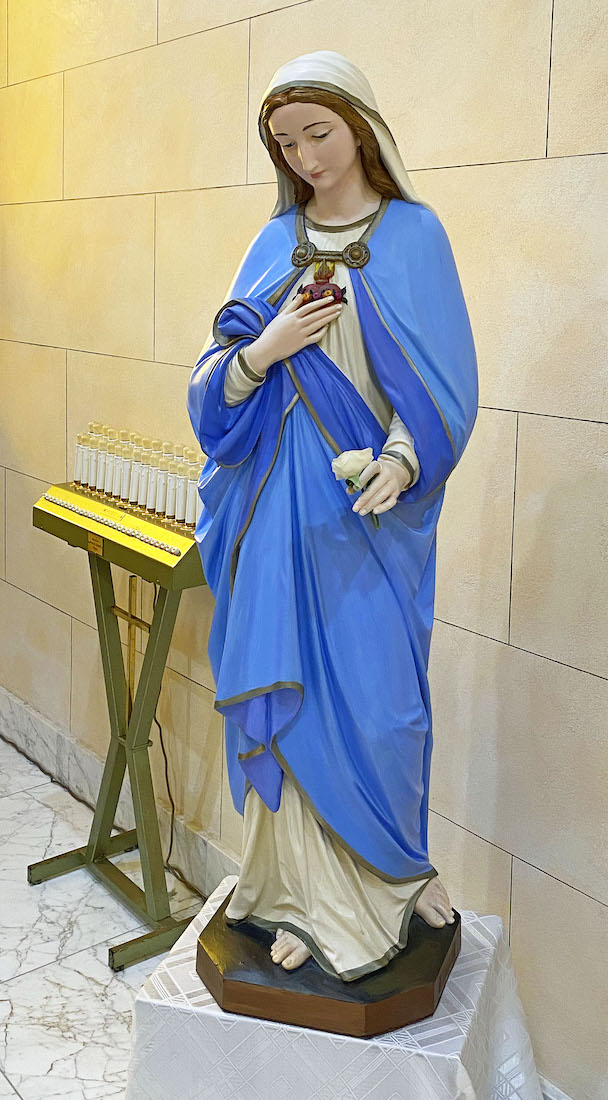
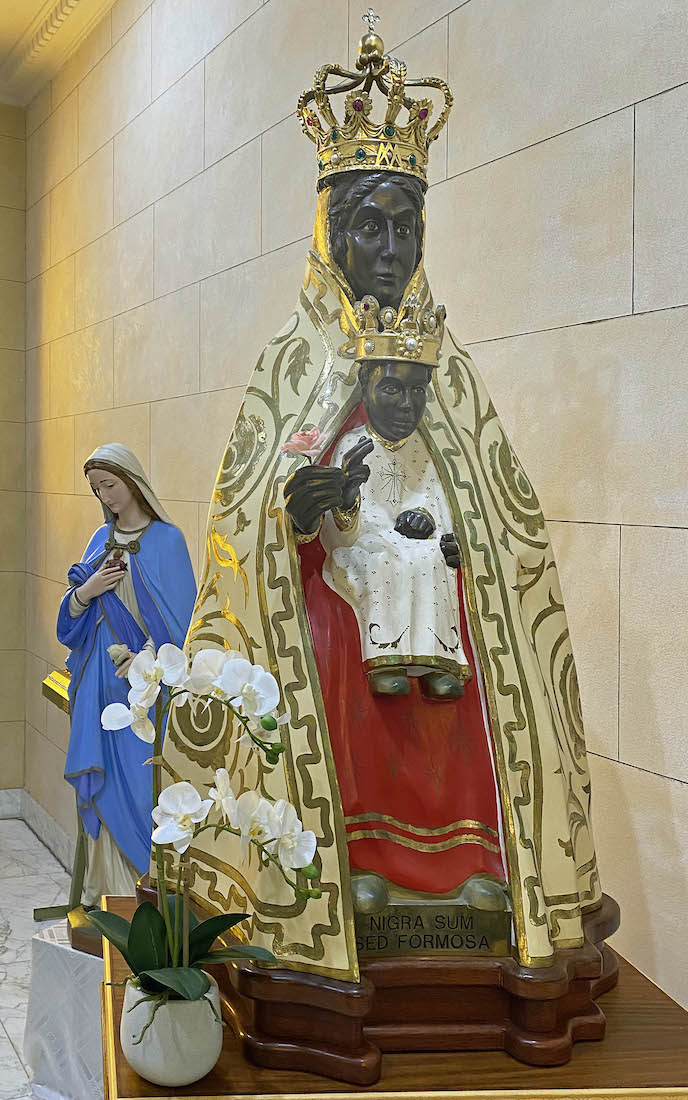
On the right as we enter this chapel, there are two further images of Mary. ••• A smaller figure standing behind and dressed in blue holds a rose in one hand, and her heart in the other. There is reference here to the Immaculate Heart of Mary – a Roman Catholic devotional name used to refer to the Catholic view of the interior life of Mary, mother of Jesus, her joys and sorrows, her virtues and hidden perfections, and, above all, her virginal love for God the Father, her maternal love for her son Jesus Christ, and her motherly and compassionate love for all mankind. ••• In front is the statue of Our Lady of Tindari, or the Black Madonna. According to tradition, during the 7/ 8th centuries, the effigy of the Mother of God was transported by sea to the eastern shores of Sicily. A raging tempest forced the ship to land at Tindari where the sailors entrusted monks with the image of Our Lady. This was the origin of Our Lady of Tindari. INDEX
42. INFORMATION SHEET ABOUT OUR LADY OF TINDARI
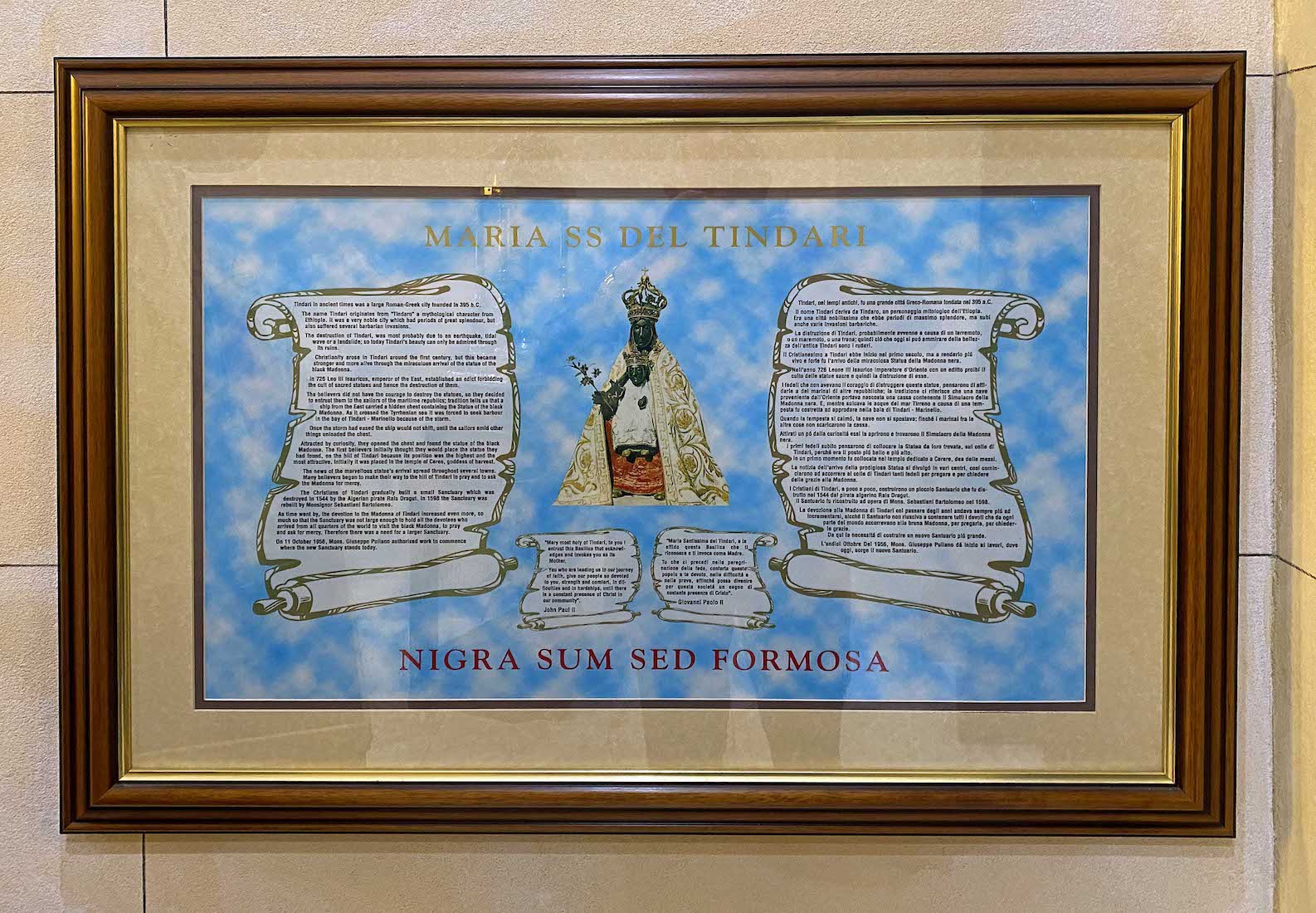
A framed poster on the wall nearby gives some detailed information about the Tindari Madonna.
43. OUR LADY OF MARTYRS
‘Our Lady of Martyrs’ (or ‘Our Lady Queen of Martyrs’) is a title given to Mary. The name arises because Mary was united with the suffering Jesus, and herself endured intense psychological suffering.
45. SANCTUARY CEILING
Above the sanctuary is a simple ‘modern’ ceiling with a squared pattern of two types of quatrefoil.
46. AMBO AND PASCHAL CANDLE
The ambo at left is a combination pulpit and lectern. This is a piece of furniture often found in Catholic churches. ••• The paschal candle illustrates that ‘Jesus is the light of the world’. It is mainly used over the Easter period.
47. TRINITY ICON TAPESTRY
The icon tapestry, which hangs proudly above the Altar, was installed in 1994. This was a specially-commissioned 50 square metre, one-tonne wool tapestry icon of the Blessed Trinity. It was made in Ireland by world renowned tapestry artist Desmond Kyne of hand knotted Australian wool in thirty colours. At top is a spiral – a symbol for God the Father. The spiral evokes power, energy, creation, immensity, and ‘the still centre of the turning world’. The central feature is the Cross of Christ surrounded by the Celtic sun. Above the cross is the dove of the Holy Spirit, and this theme is continued down around the cross, with water on the left and fire on the right.
48. ALTAR
At the centre of the sanctuary is the solid marble altar – the place from where the Elements of the Eucharist are administered.
49. SANCTUARY LAMP AND TINY CRUCIFIX
Standing just behind the altar are a sanctuary light and a tiny crucifix. The glowing red sanctuary light indicates the presence of the blessed Elements of the Eucharist. The small crucifix may be used as a processional crucifix.
50. HIGH ALTAR REREDOS
Normally behind the (high) altar we find some sort of screen or reredos. There is a modest marble screen here, although it is almost covered with drapes and flower arrangements! In the centre is the locked tabernacle where the blessed Elements of the Eucharist are stored. These Elements have been blessed by a priest on a Sunday, and are then available for ministry to the sick during the week. This completes our tour of this very interesting Basilica.
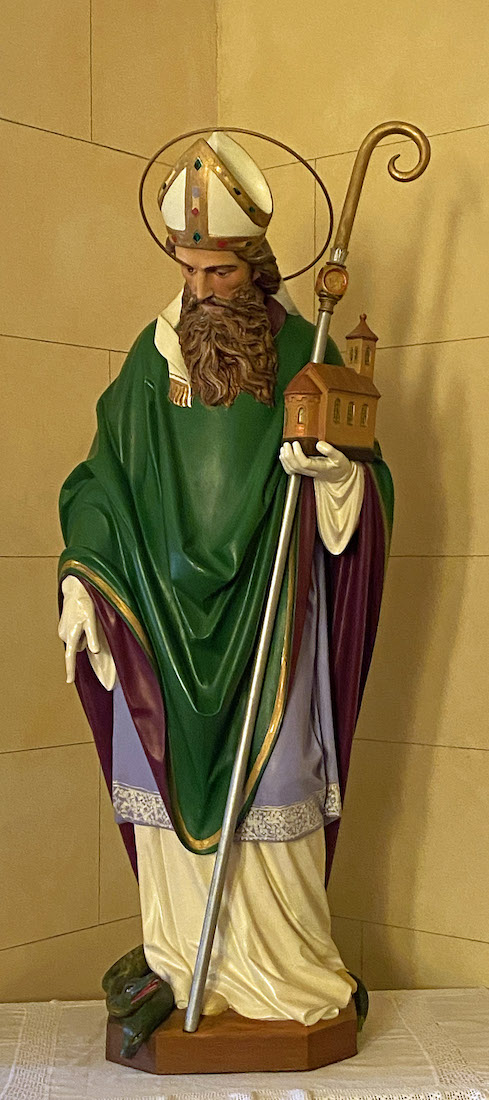
CONCLUSION
I hope you have enjoyed visiting the St Patrick‘s Basilica with me. As mentioned earlier, I was pleasantly surprised to discover this grand old building tucked away in Fremantle.
I am happy to receive constructive comments or corrections concerning this website. The best websites are the ones which have no errors! I am grateful to my wife Margie who came to Fremantle with me, and who has proof-read these pages.
The photos on this site are all mine, and can be found in greater resolution on my Flickr site:
https://www.flickr.com/photos/paulscottinfo/albums/
However, I make no claim for originality of the text which has been drawn from many sources. These include Wikipedia, the excellent Basilica pamphlet, and the Basilica website at:
https://fremantlestpatricks.org.au
Paul Scott Site created 5 / 2023

